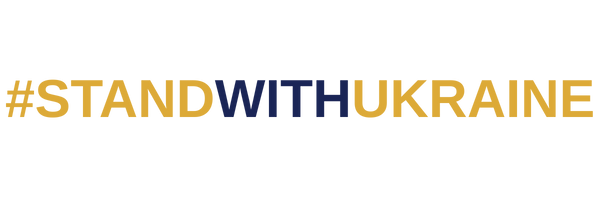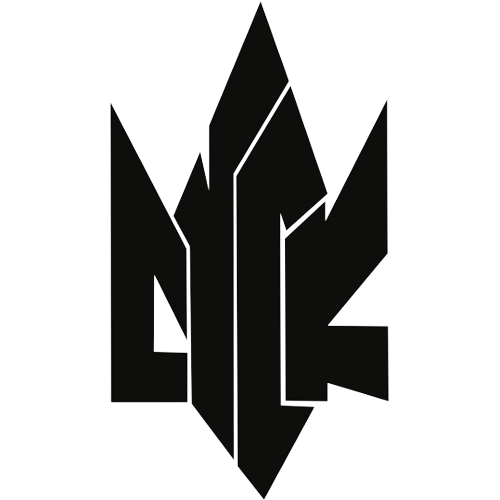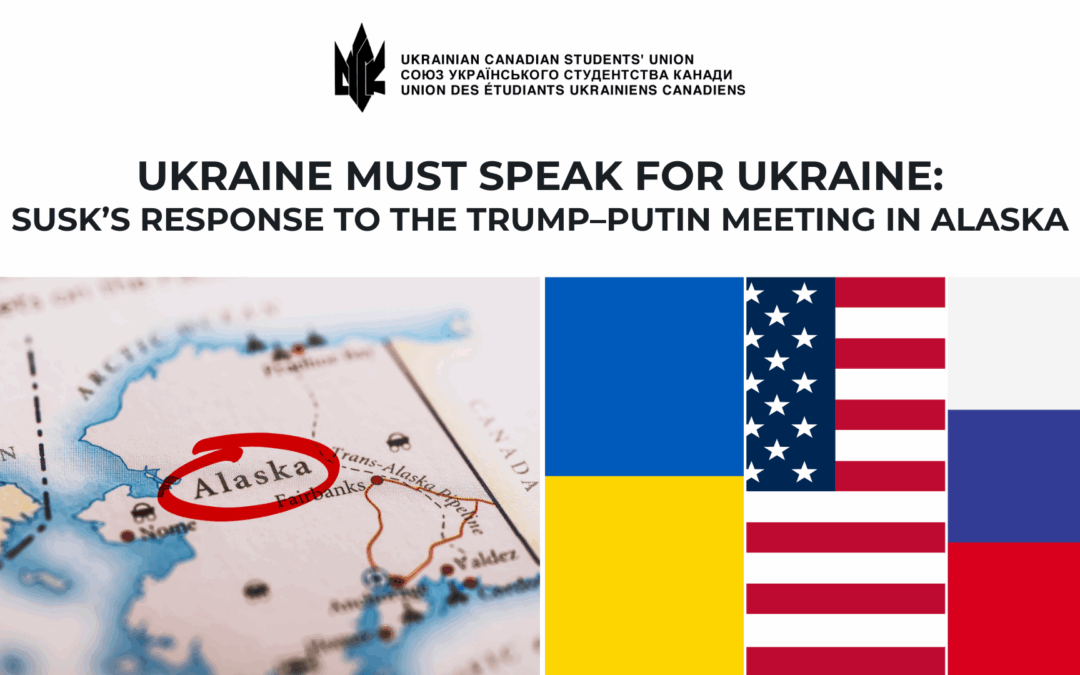August 14, 2025
Tomorrow, President Donald Trump will meet with Russian President Vladimir Putin in Anchorage, Alaska, at Joint Base Elmendorf‑Richardson for a summit aimed at ending the war in Ukraine. This meeting will be the first separate Russian-American summit on U.S. soil since 1988. Announced only days ago, the meeting has drawn global attention for both its symbolism and its stakes: Trump insists that he can broker peace where others have failed, while Ukraine’s allies are wary of being sidelined and many Ukrainians fear the outcome could come at their expense. Below, we summarize the context of the summit, the track record of the Trump peace agreement, the position of Ukraine and Russia, and three possible outcomes of the negotiations.
Summit Context and the Symbolic Choice of Alaska
The August 15, 2025 meeting will be the first between Trump and Putin since Trump’s re-election, and their first encounter since June 2019 in Osaka, Japan (Kumar, 2019). Chosen because of its symbolism, Alaska is a geographically convenient location due to its proximity to the Russian Federation and represents Cold War frontier. In addition, this U.S. state belonged to Russia until its sale in 1867(Coppock, 2020).
Trump, who promised to end the war in Ukraine “within 24 hours,” but suffered repeated disappointment from Moscow’s actions, says he will quickly understand if Putin is serious at the meeting (Dale, 2025). In the lead-up to Alaska, he has hinted at a controversial “territory swap” proposal – potentially allowing Russia to retain the Sea of Azov, Donetsk, Luhansk, Kherson, and Zaporizhia in exchange for a ceasefire. This idea has alarmed millions of Ukrainians and allies alike (Oliynyk, 2025).
Trump will attend the Alaska summit, touting his reputation as a peacemaker and global dealmaker. In the first months of his second term, he has brokered several peace agreements between Israel and multiple Arab countries, Israel and Iran, Serbia and Kosovo, India and Pakistan, Thailand and Cambodia, and the DR Congo and Rwanda (Taheri, 2025). The most notable recent event was the signing of the historic peace agreement between Armenia and Azerbaijan at the White House, which ended decades of Karabakh conflict, which neither the Russians nor the Europeans could stop, and even earned the American president a nomination for the Nobel Peace Prize (Hairsine, 2025). These successes have strengthened Trump’s image as a peacemaker and, in his opinion, confirm his courageous approach to ending conflicts. Yet, despite his boasts and ultimatums, Russia’s full-scale invasion of Ukraine, which has been going on for 3 and a half years, continues. Trump at one point threatened 100% tariffs on countries trading with Russia, like India, China and Brazil, if Putin did not agree to cease hostilities by the deadline, but saw that deadline expire to no avail (Inocencio, 2025). Disappointed, Trump publicly condemned Russia’s ongoing missile strikes on Ukrainian cities, calling them “disgusting” (Raufoglu, 2025). Nevertheless, Trump’s recent diplomatic victories (for example, in the Caucasus) give him confidence that he will head to Alaska, where he hopes to conclude his largest peace deal to date.
Ukraine Excluded – and Zelenskyy’s Reaction
Unconfirmed but widely reported information suggests that Ukraine will be absent from the Alaska talks, with President Volodymyr Zelenskyy pointedly not invited (Waterhouse, 2025). Zelenskyy has already engaged in intensive talks with the leaders of many Western and European leaders, such as France’s Emmanuel Macron, the UK’s Keir Starmer, and Germany’s Friedrich Merz. Without any doubt, the leaders of the European states insist no peace can be made behind Ukraine’s back, and Zelenskyy has rejected any proposal involving territorial concessions, declaring that Kyiv will never agree to the occupation (Lau, 2025). The Canadian perspective is similar to that of Europe. Prime Minister Carney stressed that any decisions about the future and security of Ukraine must be made by Ukrainians themselves, and that international borders cannot be changed by force (Zimonjic, 2025). In other words, Trump’s hints at “land swaps” alarm Kyiv and Europe, which sees such official concessions as unconstitutional and unacceptable after years of war. Moreover, it is quite obvious that Moscow’s desire to control the de facto territories of the Kherson, Zaporizhia and Donetsk regions that have not yet been occupied is an extremely unrealistic political desire.
The Russian Perspective and Propaganda
For the Kremlin, the Alaska summit is already a symbolic diplomatic victory (Walsh, 2025). Meeting in the United States allows Putin to present himself domestically as having restored his standing in the West. In addition, Russian state media is expected to use the visit to stoke national pride and imperial nostalgia, pointing to Alaska’s historical ties to Russia. (Daly, 2025).
Putin has said he may meet Zelenskyy later — but only after reaching an agreement with the U.S. (Maxwell, 2025). His strategy remains the same – to stick to maximalist positions until others give in, apparently confirmed by Trump’s willingness to negotiate mainly on his terms, which negatively affects democracy in the world. Even in the absence of results, such a position can be considered advantageous. Invitations for Trump to visit Moscow further underline the Kremlin’s goal of normalizing U.S.–Russia relations without addressing European and Ukrainian concerns.
Three Possible Obvious Outcomes of the Summit
From the view of the author of this article, there are three ways the Alaska talks could end:
- No Deal – Trump and Putin fail to agree and the war continues. Trump’s inability to influence Putin becomes clear, hardening Ukraine’s resolve and exposing the summit as little more than a propaganda gift to Moscow, with no real positive change.
- Hollow Deal – Both leaders announce a short-term truce or pause in airstrikes, but nothing changes on the ground. Putin could use the break to rearm while Trump claims displamtic “success”, making it a strategic timeout rather than real peace.
- Concessions at Ukraine’s Expense – The worst-case scenario would be strong pressure on Kyiv from Washington and Moscow to agree to a “land swap” deal pressuring Ukraine to give up territory for a ceasefire. This would include territory as well that Russia has not yet possed control over which are currently being defended by the Ukrainian Armed Forces. These can include the current line of combat contact or even Kramatorsk and Sloviansk in Donetsk Region and the north of the Kherson and Zaporizhia regions, which Putin has already written into his constitution, but does yet possess control over. Such an agreement would be rejected by Kyiv and many Western allies outright, as it would likely lead to future conflict.
SUSK’s Position: No Peace Without Ukraine
For over three decades, the Ukrainian Canadian Students’ Union (SUSK) has stood firmly for Ukraine’s independence, democracy, and territorial integrity. We reaffirm: Ukraine must be an active participant in any negotiations about its future.
Deals made without Ukraine risk legitimizing aggression, undermining international law, and condemning millions to life under occupation. Peace cannot come through the erasure of borders or the silencing of the nation under attack.
Our message is simple and clear:
Only Ukraine can speak for Ukraine. Anything less is not peace – it is betrayal.
Слава Україні!
Written by SUSK Summer Intern – Daniil Zhelezniak (Saint Mary’s University)
Edited by SUSK President – Daria Furtak (University of Ottawa)

REFERENCES
Coppock, M. (2020, February 3). Why Alaska Is Part of the United States and Not Canada or Russia. HISTORYNET. Retrieved from https://www.historynet.com/why-alaska-is-part-of-the-united-states-and-not-russia/
Dale, D. (2025, April 25). Fact check: It wasn’t ‘in jest.’ Here are 53 times Trump said he’d end Ukraine war within 24 hours or before taking office. CNN. Retrieved from https://www.cnn.com/2025/04/25/politics/fact-check-trump-ukraine-war\
Daly, J. (2025, August 12). “Alaska Is Ours”: How Russians React to the Trump-Putin Meeting. United24 Media. Retrieved from https://united24media.com/anti-fake/alaska-is-ours-how-russians-react-to-the-trump-putin-meeting-10678
Davies, K.M. (2025, August 12). The diplomatic efforts that led to the Trump-Putin meeting on Ukraine. SeattlePI. Retrieved from https://www.seattlepi.com/news/article/the-diplomatic-road-that-paved-the-way-for-a-20806530.php
Hairsine, K. (2025, August 8). Armenia, Azerbaijan sign historic US-brokered peace deal. Deutsche Welle. Retrieved from https://www.dw.com/en/armenia-azerbaijan-sign-historic-us-brokered-peace-deal/a-73567746
Inocencio, R. (2025, July 15). Trump threatens countries that do business with Russia with 100% tariffs. Here’s who it could impact. CBS News. Retrieved from https://www.cbsnews.com/news/trump-russia-ukraine-war-tariff-threat-countries-that-do-business-with-russia/
Kumar, A. (2019, June 28). Trump can’t help himself when it comes to Putin. Politico. Retrieved from https://www.politico.com/story/2019/06/28/trump-putin-relationship-g20-1386490
Lau, S. (2025, August 10). Ukraine’s European allies say peace talks must include Kyiv. BBC. Retrieved from https://www.bbc.com/news/articles/c0e9py7e28xo
Maxwell, E. (2025, August 7). Putin says ‘conditions’ for talks not met as Zelensky pushes for meeting with Russia. France 24. Retrieved from https://www.france24.com/en/europe/20250807-zelensky-calls-for-face-to-face-putin-meeting-to-end-ukraine-war
Oliynyk, T. (2025, August 8). Trump: There should be territory swap in the interests of both Ukraine and Russia. Ukrainska Pravda. Retrieved from https://www.pravda.com.ua/eng/news/2025/08/8/7525359/
Raufoglu, A. (2025, August 1). Trump Condemns ‘Disgusting’ Russian Strikes on Kyiv, Dispatches Witkoff to Moscow. Kyiv Post. Retrieved from https://www.kyivpost.com/post/57337
Taheri, M. (2025, August 8). Map Shows Where Donald Trump Has Helped Broker Peace Deals Since Election. Newsweek. Retrieved from https://www.newsweek.com/map-shows-where-donald-trump-has-helped-broker-peace-deals-since-election-2110970
Walsh, N.P. (2025, August 9). Trump-Putin summit in Alaska resembles a slow defeat for Ukraine. CNN. Retrieved from https://www.cnn.com/2025/08/09/europe/trump-putin-summit-analysis-2-intl
Waterhouse, J. (2025, August 11). Zelensky could still attend Trump-Putin meeting, but rest of Europe is shut out. BBC. Retrieved from https://www.bbc.com/news/articles/cn5eedq7ldro
Zimonjic, P. (2025, August 11). Carney and Zelensky speak ahead of Trump-Putin summit in Alaska. CBC News. Retrieved from https://www.cbc.ca/news/politics/carney-zelenskyy-talk-before-trump-meets-putin-1.7606064

